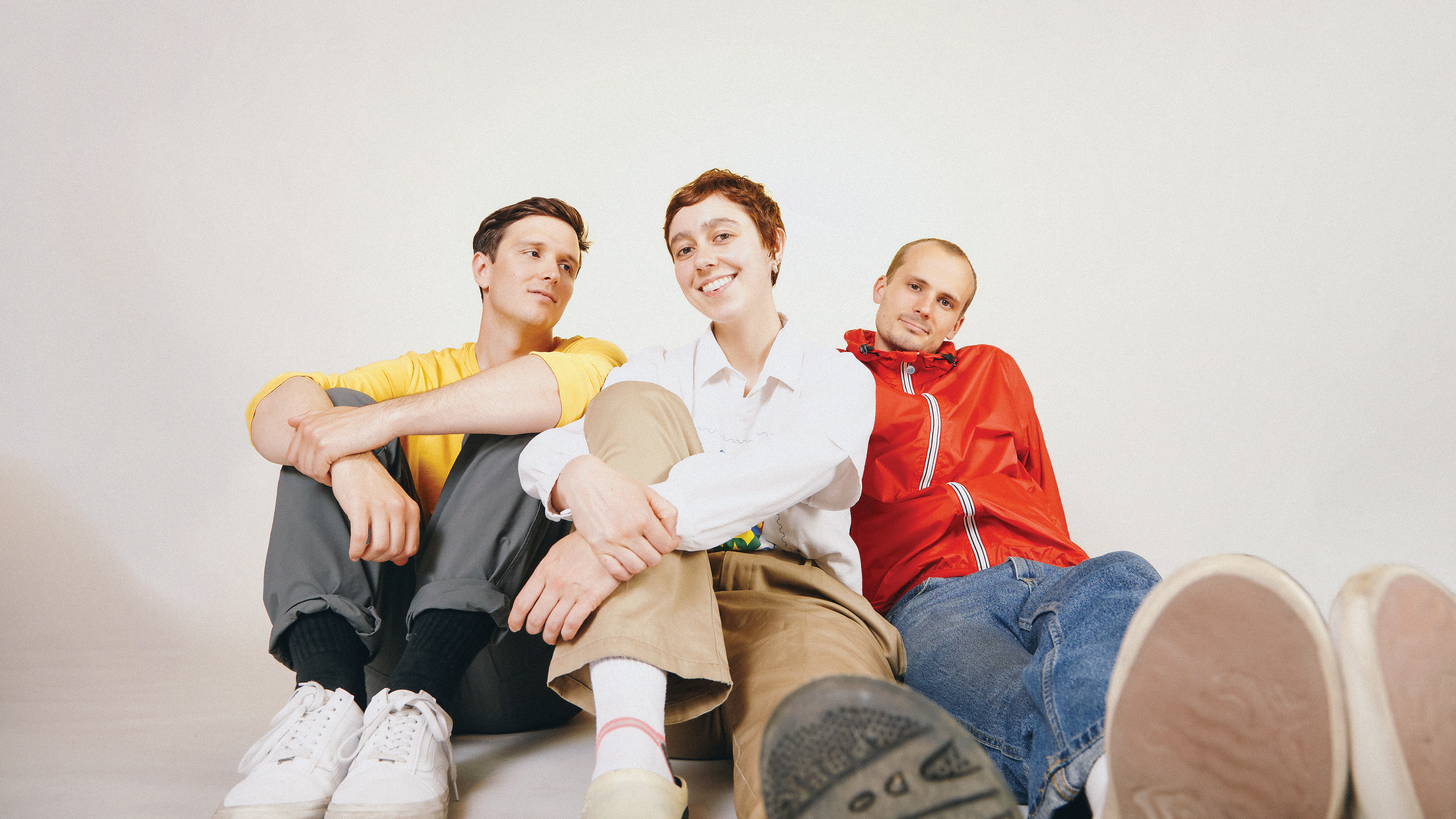
Upon the release of their debut album Native Speaker (2011), Braids received critical acclaim for their cerebral yet surreal approach to music-making. Determined to do things their way, the Montreal-based trio evaded collaboration before agreeing to enlist a producer for their fourth album, Shadow Offering (2020). However, despite being a positive experience, the pandemic killed off the promotional tour, leaving them crestfallen.
Three years later and the band return with their fifth album, Euphoric Recall. Looking to heal their creative spirit and more determined than ever to act on their instincts and self-produce, the LP sees Braids at the height of their creative powers. The meticulous combination of electronics and live strings gives Euphoric Recall genuine emotional weight, amidst Raphaelle Standell-Preston’s powerfully expressive yet abstract vocal prose.
Braids were very DIY before slowly introducing a producer. How has that journey been?
Raphaelle Standell-Preston: “We produced everything ourselves except for Shadow Offering and Deep In The Iris where Damian Taylor did the mixing. On the latest record, we’ve returned to producing again, which is where we’re the most comfortable, and our drummer Austin [Tufts] was the primary mix engineer on this one.”
Taylor Smith: “When Chris Walla produced Shadow Offering we tried to take a step back from our sonic intuitions by capturing a live performance in the room, cutting those experiments up as samples and triggering them for the record, but it’s our DIY approach that’s really stuck with us over the years.
“We’re very hands-on songwriters and rarely follow the traditional artist structure of writing a bunch of songs and taking them to a studio with a producer who might bring them to life on a record. We like experimenting with shaping sounds in a recorded space right from the get-go and so we brought everything back in-house for Euphoric Recall and embraced that punk mindset of doing everything ourselves from front to back.”
We’re coming to a point where albums are made post-pandemic rather than during it, but did that period change how you work together?
TS: “It was very transformative but in a particular way. It didn’t dramatically change how we work in terms of bopping in and out of studios and having a wide array of collaborators, because we’ve always had a bunker mentality. We hole up and isolate ourselves – so much so that until we met Chris Walla we didn’t know that other bands made records a different way, but we feel that approach gives us a really unique musical relationship with each other.”
RS: “Shadow Offering was a painful but transformative experience for us. We threw all our eggs in one basket, worked so hard and had a lot of high hopes for the record, but when it came out during the pandemic and all the tours were cancelled that gave us band depression.
“We couldn’t believe that happened and were really affected. We took some time off from making music because the whole experience left us feeling like we didn’t care about the industry or how a record was going to do. Because we’d felt that loss, we came back to doing everything ourselves with a ‘fuck it’ attitude – it was the only way for us to get that energy back.”
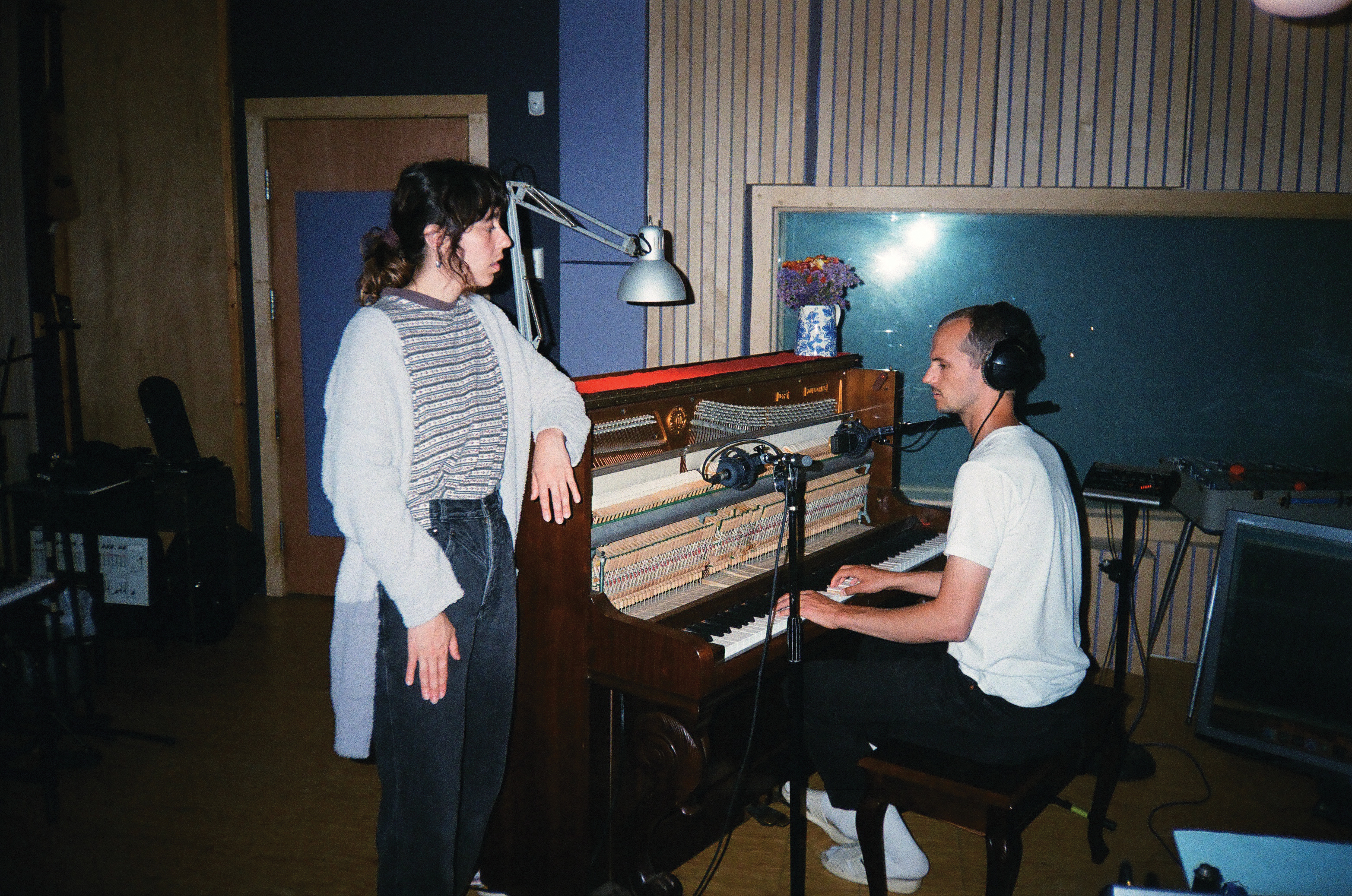
Do you feel that Braids has increasingly embraced electronics and allowed that to guide the sound?
TS: “When we started we were all guitar and drums and now we’re more into the electronic world, but it’s a little bit like a pendulum. The first record was all guitars and effects pedals but we got tired of being referred to as a rock band. But whether the music is acoustic or guitar-driven, there’s always been an emphasis on twisting and morphing sounds. It’s rare that we’ll write a song in a traditional way without throwing a truckload of delay over everything to make it sound otherworldly.”
It was interesting to read how when you first started using electronics you struggled to translate that to the live stage.
TS: “When we play a show, Austin is mostly playing drums and Raph is singing and playing guitar, but everything else is on me to get the songs off the ground depending on what we’ve just released and how the songs are structured.
“When we first endeavoured to bring the electronic world to the live stage, we really struggled as we’d come from a Moog pedal lineage with no computers or tracking and had a ‘no-preset’ approach. This was back when indie bands were just starting to play along to a backing track, but we were really snobby about that.”
How did you adapt?
TS: “There are aspects of playing pre-recorded parts live that are really cool, like figuring how to create IDM drums or some live looping stuff, but overall it felt like we were too locked in to this machine that we’d designed where we had to hit the right trigger at the right time.
Whenever you’re bringing electronic music to the stage, you’re designing how interactive you want to be with your instruments and finding that blend is always challenging
“The next record was really piano-driven and single chord-based without many arpeggiated sequences, so we decided not to have a click track or a grid, trigger samples individually and build the whole thing that way. That’s super fun and flexible because you can take a song to whatever tempo you want and do a bunch of things, but then we went and wrote songs that did have loads of arpeggios so we couldn’t do that anymore. I guess that whenever you’re bringing electronic music to the stage, you’re always designing how interactive you want to be with your instruments and finding that blend is always challenging.”
RS: “A huge aspect of every Braids record is the stuff that isn’t piano, guitar or vocals and that definitely falls on Taylor’s shoulders, which is probably why he’s so stressed when we’re playing live as a band because he has to redevelop our live show every time.”
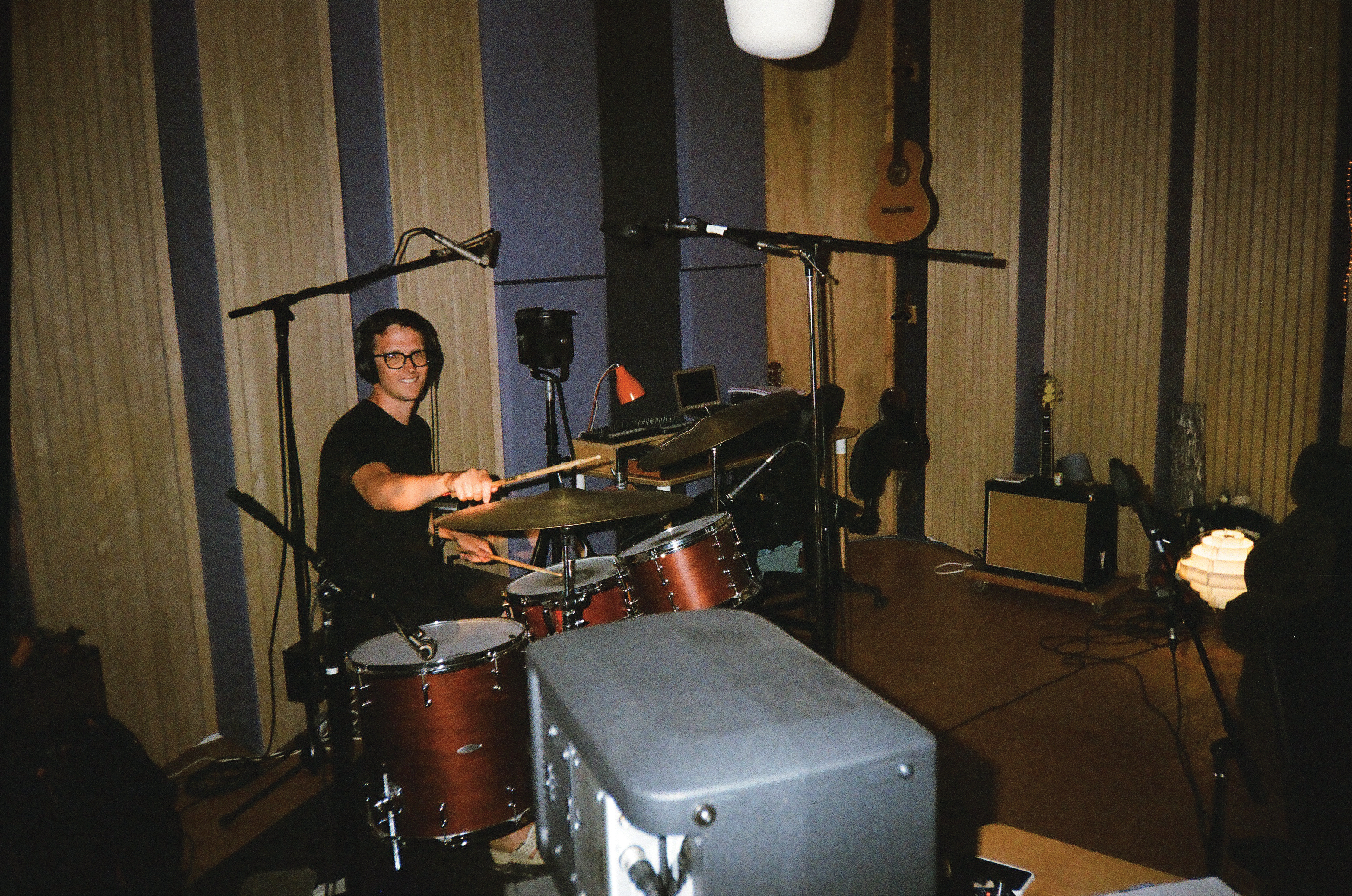
Was the creation of Euphoric Recall conventional in terms of writing demos as a platform to build from?
TS: “This time we wanted to adopt the mindset that once we’re in the room together we’re there to make a record rather than planning to make demos. We’d done that a little with Chris and while it was often rewarding it was also an arduous process.
“As Raph mentioned, we really struggled due to everything that happened when it came out so we wanted to adopt a sense of immediacy and create some green light energy. The result was to build the scaffolding of the record as we were writing it. Much of the vocals were first or second take and that applied to a lot of the performances too.
“Over the years, we’ve learned how to get a really good drum capture or spend time on the engineering side so we can immediately hone our performance. Everything that hits the page, hits the page, and you can’t really undo whatever you’ve created. It’s a bit like painting on a canvas – you can’t take the paint off you just have to paint over it. The song Retriever was a good example of us creating a live, off-the-floor recording where we owned a certain performance.”
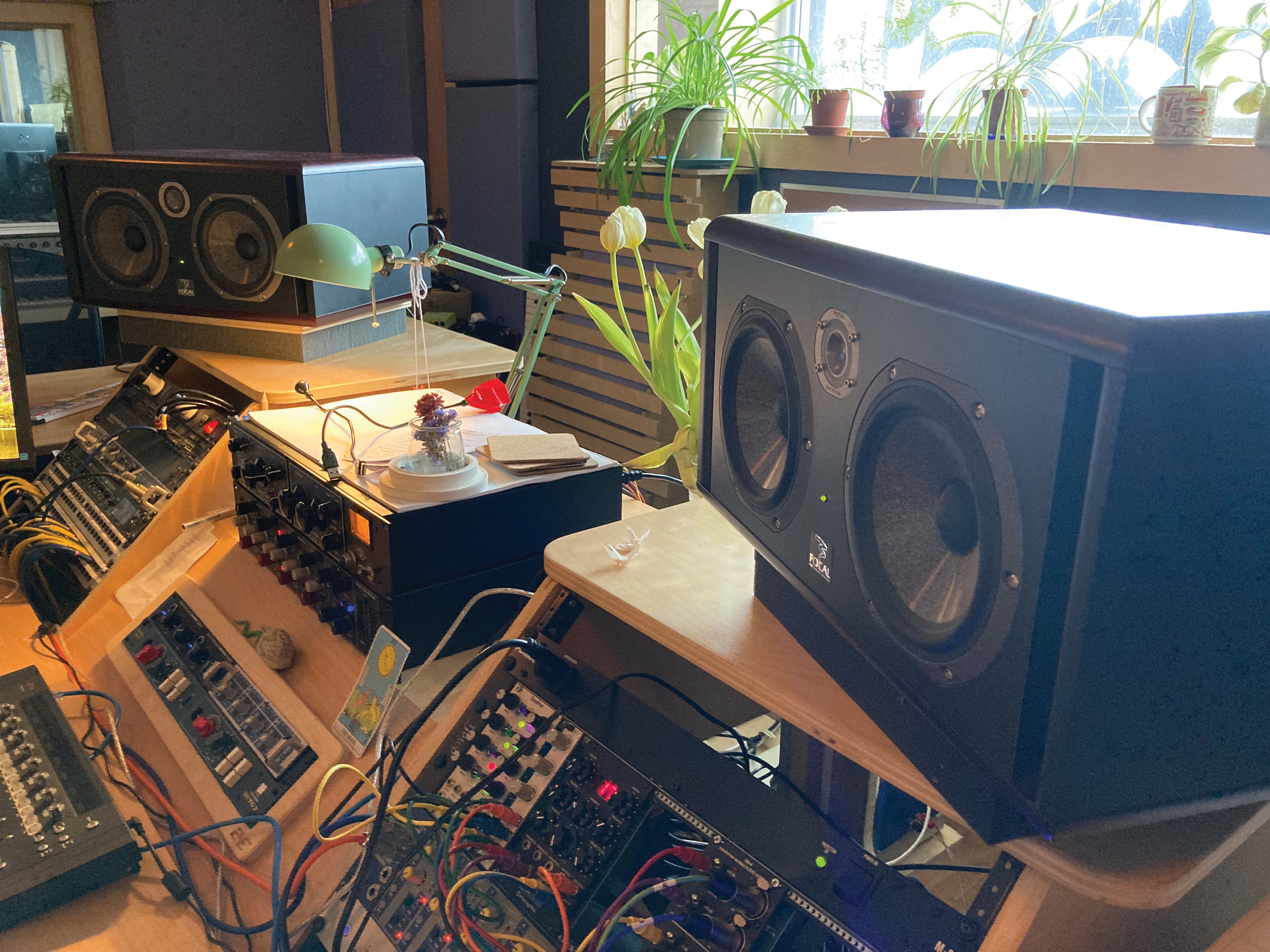
Raphaelle, when you wrote the lyrics to Braids’ debut album Native Speaker, you mentioned feeling that the world was unfair. We can’t imagine that’s diminished, but is that the fuel that feeds the lyrical fire?
RS: “There is a lot of injustice and uncertainty in the world right now, but I was a teenager when I wrote our first record and now I’m a 33-year-old woman. When I was 18 or 19 I was struggling with my mental health, but I’ve done so much therapy over the years I could probably get a degree [laughs].
All of the lyrics were written on the spot while I was singing them. I was looking at my Twitter feed with some shit about Trump, QAnon and Elon Musk, so I basically vomited up lyrics
“What has been a blessing and a curse, but I’ve now learned to utilise, is that I’m a very sensitive person. I feel a lot and observe a lot, but I’ve learned to become a positive vessel in a way that’s not draining for me. Of course it’s good to get angry at times because it’s an important human emotion, but so are love, sadness and excitement.”
On the opening track Supernova, you sing about the dark web, glaciers and the “orange man”. Are these reflections of modern-day subconscious anxieties?
RS: “Absolutely, but all of the lyrics were written on the spot while I was singing them. We had a rule in the studio not to have your phone on, but I write my lyrics on the phone because it’s easier to read off when I’m next to the microphone.
“For Supernova, I took my phone off Do Not Disturb and read that it was Chris Walla’s birthday, which is where the ‘happy birthday to you’ lyric comes from; my boyfriend at the time floated into my DMs and I was looking at my Twitter feed with some shit about Trump, QAnon and Elon Musk, so I basically vomited up lyrics.”
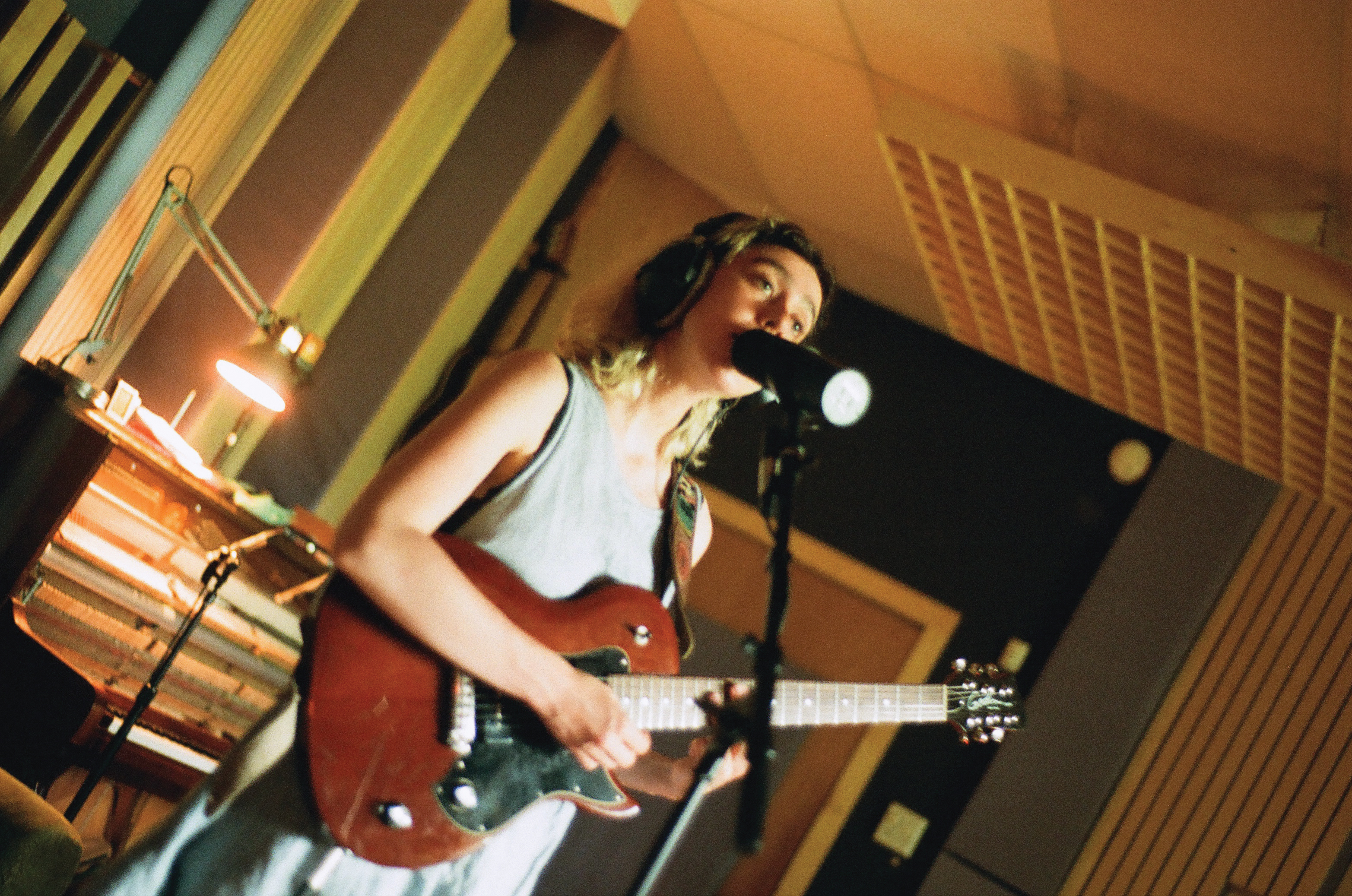
Have you had to learn to override your feelings of self-consciousness when performing?
RS: “I struggled with that for a long time because I’m a very intimate, honest and impulsive person. When I was younger, a huge aspect of what people would focus on in my lyrics was sex and that I was swearing. I definitely took that to heart and felt anger at the time about how I was being defined as a woman in the music industry, but it’s a very different climate now.”
The music seems very closely related to the lyrics in that it seems to respond to specific lyrics with specific sounds?
RS: “It was really interesting working with Chris Walla on that because he talked to us about supporting the vocal, listening to the storytelling and responding to lyrics with sound and instrumentation. I took that to heart too by listening to sounds and asking how they make me feel as opposed to them being separate entities.”
Tell us about some of the sound abstractions that run through the tracks. Supernova sets the mood with what sounds like a windscreen wiper?
TS: “It’s cool that you think that [laughs], but it’s actually a processed drum machine mixed with the sound of hands sliding across the strings of an acoustic guitar. We’re proponents of leaving our mics on all the time, and that might mean capturing the sound of people walking up to it or little ad libs that happen between takes and using those for texture and colour. There have been times when we’ve hit a water bottle in a weird way and pitched it, but lately it’s been more performance-driven.”
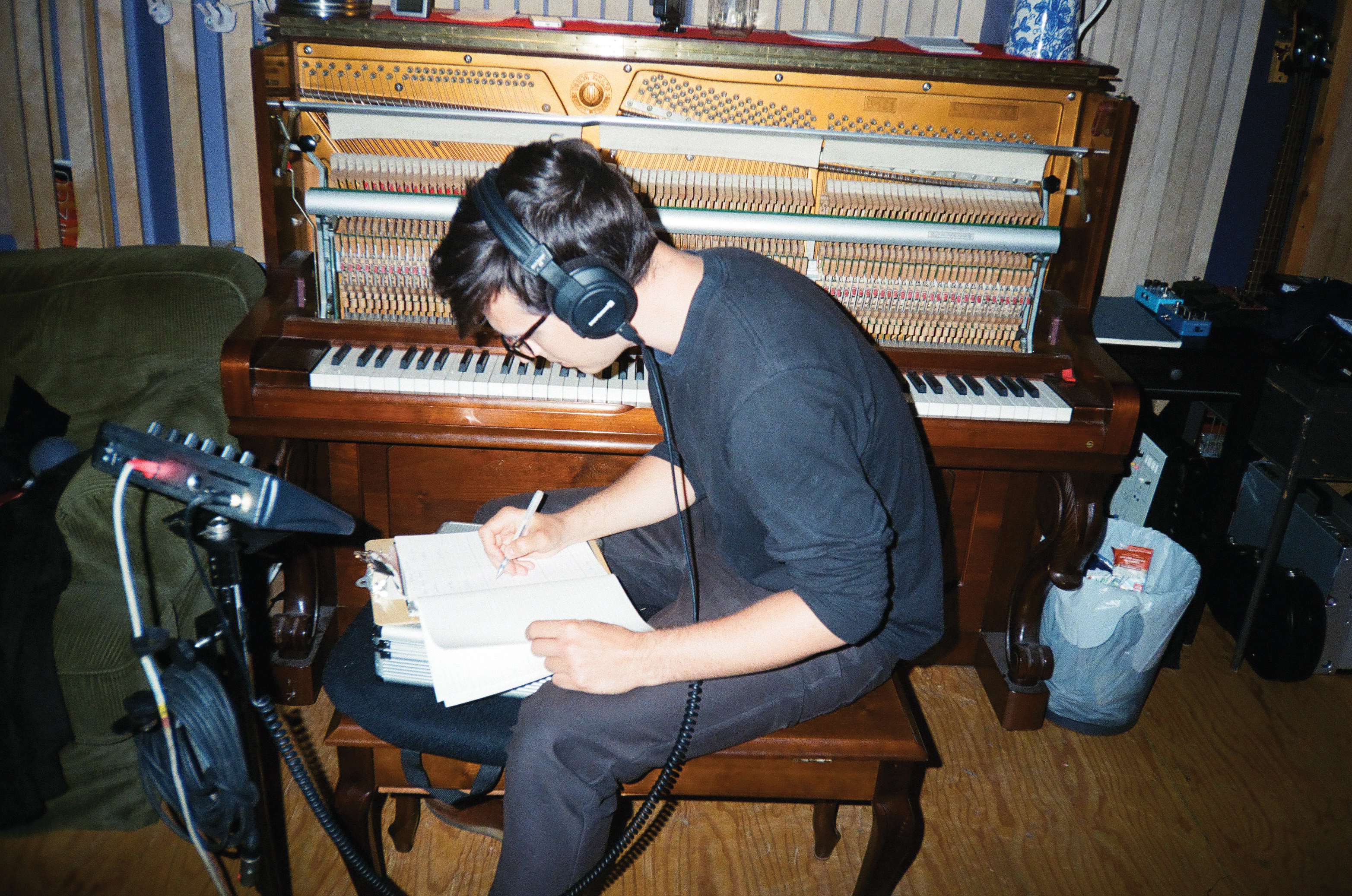
Is the implementation of a lot of those sounds done in post-production?
TS: “As we mentioned before, there’s a lot of stuff that hits the page that isn’t quite totally upright because we’re not putting a premium on perfectly colouring within the lines of whatever performance we want to do. It’s about speed, feeling, chasing the idea and then moving on to the next thing.
It’s about speed, feeling, chasing the idea and then moving on to the next thing
“That might mean painting over sounds with a new layer to give ideas stability or processing them in an interesting way to push them further into the obscure so you end up with these unexpected textures. In that way, an acoustic guitar part that you thought would be straight and centred ends up being totally leftfield because the playing wasn’t quite right or the harmony didn’t line up when it was initially performed.”
A major part of the album is the inclusion of orchestral strings and we understand that composer Edwin De Goeij gave you some assistance on that front?
TS: “Early in the process we highlighted that strings would be an interesting thing for us to explore. It’s been in the background on previous records, but this time we composed the parts using Kontakt samples until they sounded how we wanted them to and Edwin came in to help transcribe and notate those parts and create scores that we could give to session players. He also helped us with some of the arrangements, alongside Austin who has some experience of scoring for strings on other records.”

The strings give your music a whole new emotional dimension. It must have been gratifying to hear them being performed for the first time?
TS: “It was definitely a sonic trip to stand in a room and hear those pieces come together. We’ve been doing this for around 12 years now and are very familiar with our tools and each other, so to get into a brand new space was a new dimension for us. It’s probably the first time we’ve ever had someone else playing on a song.”
RS: “It was a beautiful experience – one that reminded us that it would be nice to collaborate more with people on our records and feel that interaction.”
What hardware synths did you use throughout the recording process?
TS: “Most of the low-end synth bass stuff comes from the Korg MS-20, but the main polysynth I use is the Korg Prologue, alongside some modular outboard for effects processing rather than synth generation. We also used an old ’70s synth called a Korg Sigma, which was great for vintage lead lines, and there’s quite a bit of piano on the record. Actually, the track Lucky Star is all piano recordings sampled, restructured and processed to the point where they sound like an ambient texture or synth loop.”
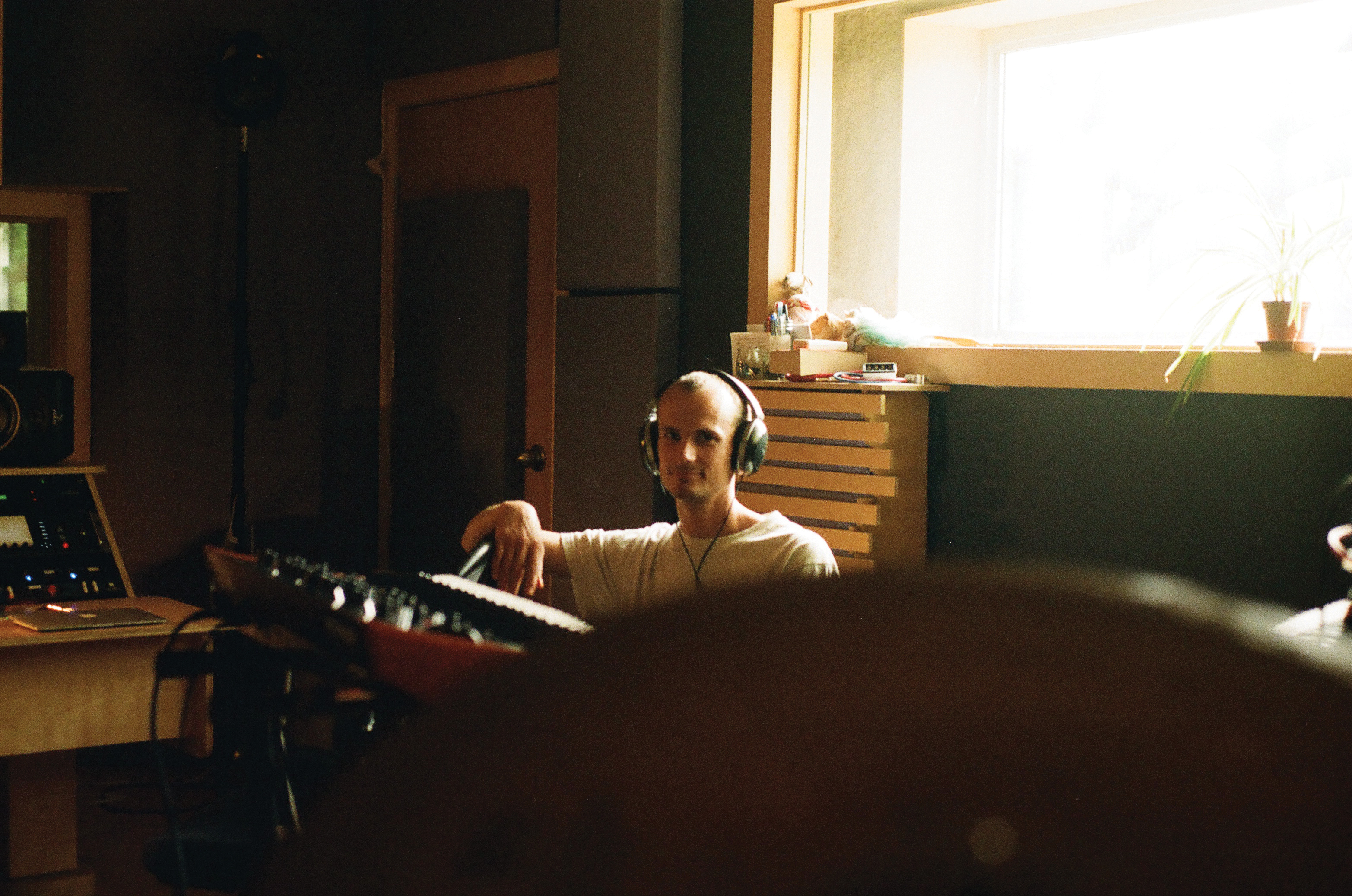
There doesn’t seem to be a lot of live drums on the album but quite a bit of programming?
TS: “We used an MFB Tanzbar for a lot of the drum machine sounds and the track Left/Right is quite glitchy and based on Ableton drum samples. Austin triggered a lot of the drums from sample banks he has using the Roland SPD-S sampling pad, so all of those glitches are actually performed, and it was fun and interesting to create Autechre-style drums in a way that moves beyond them being tied to a computer or sequencer. ”
Taking into account the heavy orchestral component to this record, how do you intend to perform the tracks live?
TS: “For the first few shows, we feel that having the ensemble onstage with some immersive visuals would be a special opportunity to accentuate the work and mark the release of the album. To have other players on stage is a new foray for us, but it’s interesting to think about how we might bring material from our past catalogue and add a string element to some of those songs. Hopefully we can reimagine those tracks through a different lens altogether and find a new vessel to take them forward emotionally.”
Braids new album Euphoric Recall is out now via Secret City Records.







